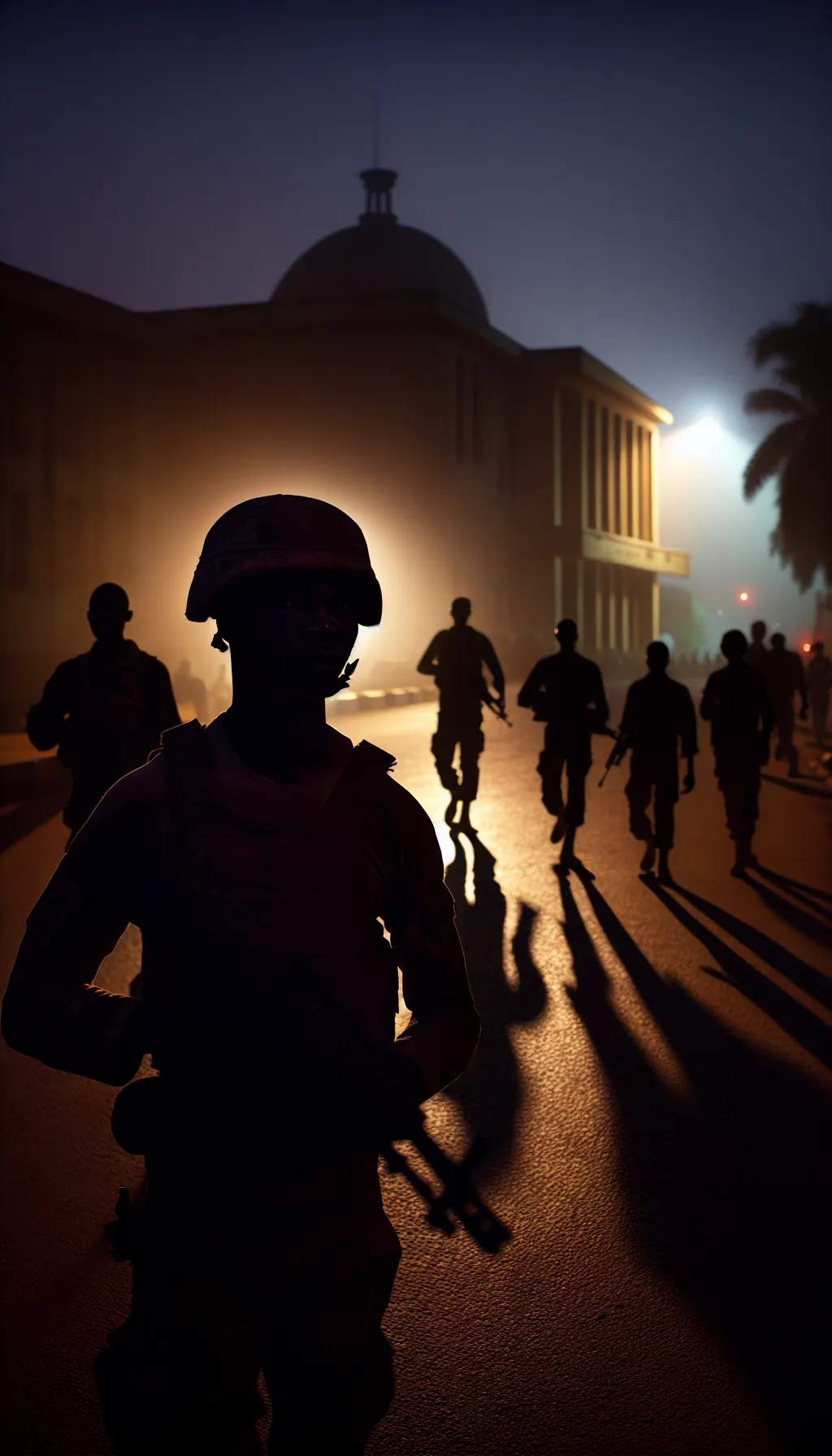Liberia – The Dawn of Change: Liberia's 1980 Coup d'état
TLDR;
- Event: On April 12, 1980, Master Sergeant Samuel Doe led a coup in Liberia, overthrowing President William R. Tolbert Jr. and ending over 130 years of Americo-Liberian rule.
- Significance: The coup marked a seismic shift in Liberia’s power dynamics, with indigenous Liberians taking control for the first time.
- Impact: The coup led to military rule under Doe, initially through the People’s Redemption Council, and set the stage for years of instability and civil conflict.
- Legacy: The 1980 coup remains a pivotal moment in Liberian history, symbolizing both the end of Americo-Liberian dominance and the beginning of a turbulent era of governance challenges.
–
Story
In the pre-dawn darkness of April 12, 1980, the air in Monrovia was thick with tension. The city, usually quiet at this hour, was alive with the sound of boots on pavement and the distant crackle of gunfire. Master Sergeant Samuel Doe, a man of humble origins, was leading a small group of non-commissioned officers in a bold and audacious move that would forever alter the course of Liberian history.

For over 130 years, Liberia had been under the rule of the Americo-Liberian elite, descendants of freed American slaves who had established a society that mirrored the racial hierarchies of the United States. President William R. Tolbert Jr., the latest in a long line of Americo-Liberian leaders, was in the Executive Mansion, unaware that his presidency was about to come to a violent end.
The coup was swift and brutal. By morning, Tolbert was dead, and the government had fallen. Doe, a 29-year-old master sergeant, declared himself the new leader of Liberia, initially chairing the People’s Redemption Council (PRC), a military junta, before consolidating power as president. The coup was not just a change in leadership; it was a seismic shift in the nation’s power dynamics.
This turning point was both celebrated and feared. Many saw it as a long-overdue correction of historical injustices, while others worried about the implications of military rule. The coup planted the seeds for future turmoil, as Liberia grappled with its new identity and the challenges of governance, leading to years of instability and civil conflict.
The legacy of April 12, 1980, is complex and multifaceted. It was a day that promised change but also heralded uncertainty and turmoil. The echoes of that fateful morning still resonate in Liberia today, as the nation continues to navigate its path toward peace and reconciliation.
–
| Would a different approach to governance have changed Liberia’s future? |